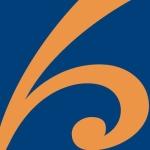Influenza A (H1N1) Swine Flu - Update Seventy
The World Health Organisation has declared the influenza H1N1 Swine Flu outbreak as a Pandemic and moved to a Phase 6 alert which recognises widespread community transmission of the virus around the world.
Phase 6 means that WHO considers that a global pandemic is underway – it means nothing about the severity of the illness or this strain of influenza, rather it relates to how quickly and how wide the virus is spreading.
New Zealand has a comprehensive Influenza Pandemic Action Plan and has been planning and preparing since ANZAC weekend (25 April) when the first suspected cases were identified in New Zealand. The escalation by the WHO means our level of alert will also increase, but in practical terms, people will see little immediate change in our response.
The focus and response of New Zealand Health services will be governed by events here, not overseas. On the evidence we have so far, all confirmed NZ cases are travel related or close contacts of travellers – there is no evidence of community spread.
At the moment we are continuing our containment efforts, as every week we buy is important for delaying the peak of infection out past winter when hospitals are under most pressure, and giving families, schools and businesses a chance to prepare.
The way the virus has spread in Australia is what we’re likely to see here – the numbers will increase and at some stage we will have community spread.
At that point we will increase our emphasis on managing cases in the community and treat it like all flu – the difference is that many more people will be affected because the population is not immune to this new virus. While swine flu has been relatively mild so far, it will be serious for some.
The Ministry of Health advice is that people who have travelled overseas but who are well on their return or arrival do not need to be routinely excluded from school or work on their return.
At this time, the Ministry of Health is not recommending cancelling or postponing overseas travel during the upcoming school holidays which start on Saturday 4 July.
The situation in both New Zealand and internationally is being constantly reviewed, but it is not possible to predict what the situation will be in New Zealand or other countries in early July.
To protect yourself and others
Anyone who has recently travelled overseas and is ill with influenza symptoms is advised to phone their GP or Healthline (0800 611 116) for medical advice. Do not turn up at a hospital or medical centre before doing this as you can spread germs to other people.
Signs and symptoms of influenza include fever, cough, sore throat, stuffy nose, body aches, headache, chills and fatigue. Some people also experience diarrhoea and vomiting.
Hand hygiene is still the single most effective measure in protecting yourself. Wash your hands with soap and water and dry them thoroughly.
Alcohol-based cleaners are also effective. Avoid touching your eyes, nose or mouth as germs spread this way.
Practise good cough and sneeze etiquette. This means covering your nose and mouth with a tissue when you cough or sneeze, and disposing of the tissue in a lined rubbish bin with a lid or plastic bag.
Sick people should stay home until they are well, rather than going to school or work. Try to avoid contact with sick people and reduce time spent in crowded settings. If you become sick, stay home for seven days after your symptoms begin or until you have been symptom-free for 24 hours, whichever is longer. This is to keep you from infecting others.
